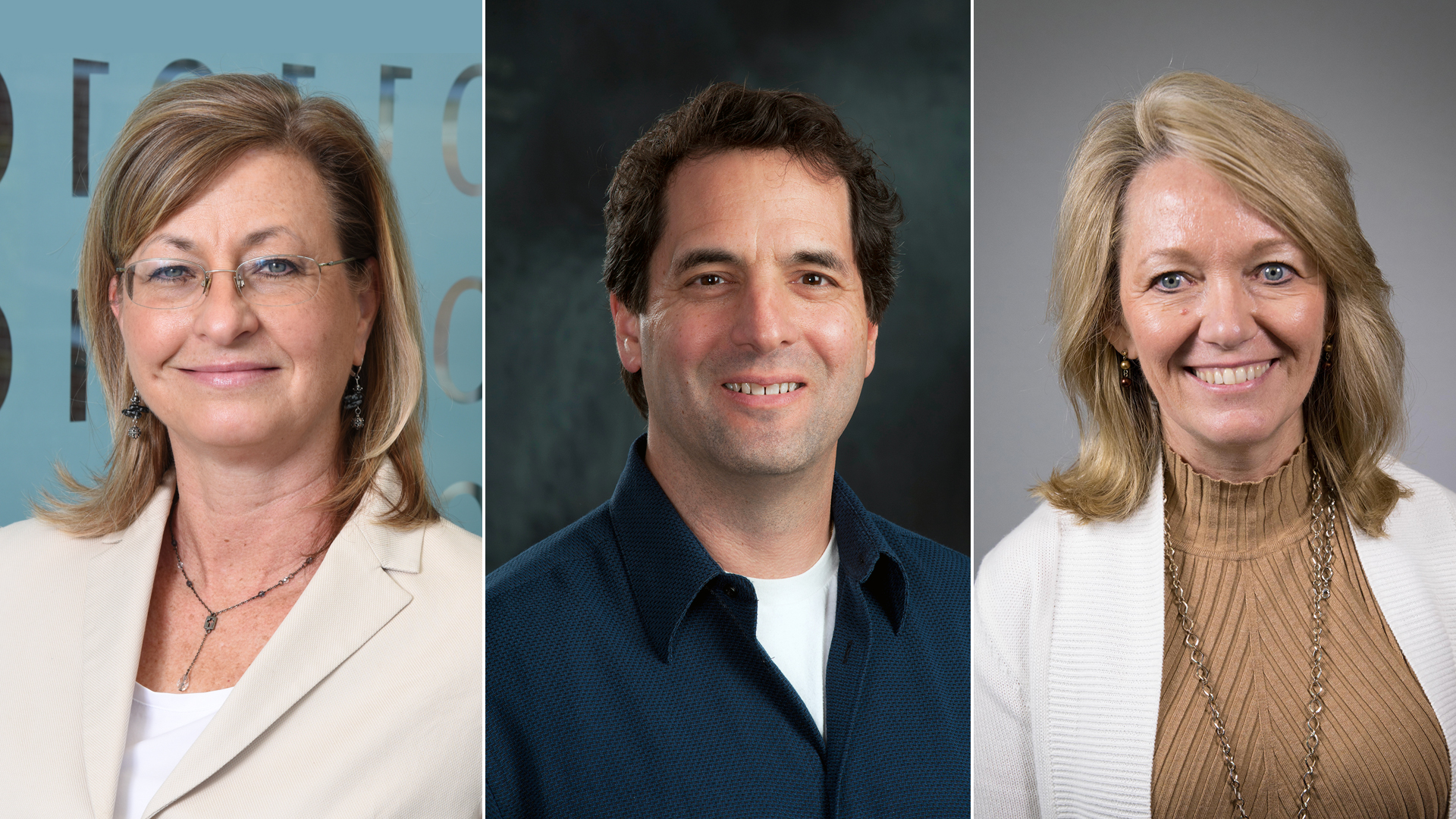
The University System of Georgia (USG) Board of Regents (BOR) has appointed three Georgia Tech Research Institute (GTRI) employees to the title of Regents' Researcher, the highest research recognition conferred by the USG. The three researchers are Stephen Balakirsky, Ph.D.; Anita Pavadore; and Margaret Loper, Ph.D., who was reappointed.
Each year, GTRI may nominate two research faculty members for Regents' Researcher. The college deans at the Georgia Institute of Technology (Georgia Tech) may nominate two academic faculty members for the Regents' Professor title and one research faculty member for the Regents' Researcher title.
The titles are awarded upon approval of the USG chancellor and its Committee on Academic Affairs only with unanimous recommendation of the Institute Regents Professor and Researcher Selection Committee, the Georgia Tech president, the executive vice president for Research, and the provost and executive vice president for Academic Affairs.
The nominations were approved by the BOR on Aug. 9.
Meet the New Regents Researchers
Anita Pavadore
Pavadore is the division chief of the Embedded System Vulnerability Division within GTRI's Cybersecurity, Information Protection, and Hardware Evaluation Research Laboratory (CIPHER). Pavadore founded the Embedded System Vulnerability Division in 2010 and is responsible for the group's strategic planning, technical leadership, business development, and operations.
Pavadore, who has been with GTRI since 1985, has expertise in vulnerability analysis of military communications systems. Her division performs cyber vulnerability assessments and has a strong background in reverse engineering and vulnerability analysis of embedded system software, hardware, and communication protocols. She is the primary author on more than 50 technical publications and has presented at multi-national conferences. Pavadore holds an M.S. in Electrical Engineering from Tech.
"I am extremely honored to receive this recognition," Pavadore said. "It is not just a reflection of my own personal accomplishments. This appointment is largely due to the dedication and expertise of all the brilliant researchers that I have had the privilege to work with during my career at GTRI. I look forward to our future challenges and opportunities as we continue to support our national defense."
Stephen Balakirsky
Balakirsky is the chief scientist for GTRI's Aerospace, Transportation & Advanced Systems Laboratory (ATAS) and the director of technical initiatives at the Petit Institute for Bioengineering and Bioscience at Tech.
Balakirsky, who joined GTRI in 2013, has expertise in knowledge-based robotics and is a subject matter expert on robotic architectures, planning, bio-automation, and autonomous systems testing. He has applied this expertise to a wide breadth of projects that includes sponsorship from the Air Force Research Laboratory (AFRL), U.S. Marine Corps, NASA, the U.S. Food and Drug Administration, and the National Institute of Standards and Technology (NIST), along with private foundations and private industry.
Balakirsky earned a B.S. and an M.S. in Electrical Engineering from the University of Maryland, College Park, and a Doctor of Engineering from the University of Bremen in Bremen, Germany.
"I am humbled and honored to be recognized as a Regents Researcher," Balakirsky said. "Throughout my career at GTRI, I have had the privilege of working alongside exceptional colleagues to develop solutions for complex problems facing government and industry. I look forward to continuing to create solutions for tomorrow's challenges."
Margaret Loper
Loper, who was first granted the title of Regents Researcher in 2019, serves as the associate lab director of GTRI's Information and Communications Laboratory (ICL). In this role, Loper assists in the formulation and tracking of ICL's long-term direction and strategy, and also collaborates with lab senior leadership in developing and executing business plans and strategic research initiatives to capture sponsored research in areas of importance to ICL.
Loper joined GTRI in 1995 and has served GTRI and Tech in many roles. She recently stepped down as the ICL chief scientist, where she managed an IRAD portfolio of $17 million in lab and corporate projects over 14 years. Loper was a founding member of Georgia Tech’s Professional Masters in Applied Systems Engineering degree program, where she taught the core M&S course for 12 years and published a book based on those lectures. She has led several strategic initiatives that had close collaboration with campus, and she was a working group co-lead for Georgia Tech's Commission on Research Next.
Loper holds a B.S. in Electrical Engineering from Clemson University, an M.S. in Computer Engineering from the University of Central Florida, and a Ph.D. in Computer Science from Georgia Tech.
“The Regents evaluation process is very thorough, looking at a researcher’s career in terms of impact, scholarship, teaching, publications, collaboration with campus and national recognition," Loper said. "I am very honored to be reappointed, and recognized for my contributions to GTRI and Georgia Tech."
RELATED STORY:
Tech Faculty Tapped for Regents' Awards | News Center (gatech.edu)
Georgia Tech
Writer: Anna Akins
GTRI Communications
Georgia Tech Research Institute
Atlanta, Georgia USA

The Georgia Tech Research Institute (GTRI) is the nonprofit, applied research division of the Georgia Institute of Technology (Georgia Tech). Founded in 1934 as the Engineering Experiment Station, GTRI has grown to more than 2,800 employees, supporting eight laboratories in over 20 locations around the country and performing more than $700 million of problem-solving research annually for government and industry. GTRI's renowned researchers combine science, engineering, economics, policy, and technical expertise to solve complex problems for the U.S. federal government, state, and industry.




